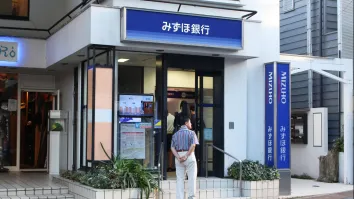Collateral management wisdom
By Helen BakerAs the rest of the world scurried to locate adequate collateral in order to secure transactions against mounting counterparty risk and to gain access to central bank liquidity, Asian banks and financial institutions were relaxed.
However, with the need to comply with Basel III and the new FASB standards, it may not be long before sophisticated collateral management business practices become as important as managing your banking relationships for balance sheet purposes.
Asian central banks are already applying pressure on local banks to demonstrate their long-term liquidity capacity levels. Moreover, in Asian markets, where banks often need to manage liquidity when large portions of their local currency balances are held off-shore, counterparty risks are more complex and must be mitigated efficiently.
And, to add even more fuel to the fire, as companies look to raise money in the capital markets rather than through conventional bank loans, they are putting pressure on their banks to secure against redeposit risks when leaving large cash balances with them.
All of these factors point towards the same issue: what is the best way to secure your exposures and to comply with client and regulator demands to be fully secured? Moving collateral when and where needed on a daily basis will certainly continue to address short-term issues. But, what about exposures arising from asset swaps and securities loan transactions, which are term rather than spot or intraday transactions? They need to be secured continuously over a longer period.
At Euroclear, we believe standardised legal agreements, such as those endorsed by the ISDA for derivative transactions and the SIFMA/ICMA commissioned Global Master Repo Agreement (GMRA), are good models for consideration in structuring the way Asia moves forward in managing the inevitable myriad of risks presented by these trends.
Many of the growing number of foreign banks doing business in Asia have already moved from unsecured to secured transactions, and are managing their diverse collateral needs centrally and with sophisticated, automated tools in order to optimise their use of collateral. Naturally, they will expect their Asian counterparties to adopt a similar risk-containment mentality and to operate without the potential risks associated with manual collateral management processes.
Proven service providers are always the best way forward, particularly when risk management is the key driver. The international central securities depositories (ICSDs), like Euroclear Bank, have been helping banks, central banks, corporates, global custodians and their clients, to manage their various collateral needs for more than two decades. Together, as neutral triparty collateral management agents, the ICSDs move more than 1 billion US dollars worth of collateral everyday.
When working with a triparty agent, the terms of the underlying transaction, whether it is an asset swap, a repo or a securities loan, are agreed bilaterally between the two counterparties. They also agree on the eligible collateral supporting the transaction, such as the type of securities to be used as collateral, their ratings, issuer and asset class concentration limits, and so forth. This information is shared with the ICSD, which then makes sure all of the collateral is valued on a daily basis and moved in or out of the collateral taker’s account during the entire life of the transaction. The terms of the legal and collateral agreement between the two counterparties are respected by the triparty agent at all times.
Important to understand is that both counterparties have complete control over the underlying transaction and are made fully aware of all collateral movements by the triparty agent. Due to the automated features for collateral movements offered by the ICSDs, operational risks are reduced substantially. In fact, use of these agents can make a bank’s entire risk management process substantially more robust.
The technology, expertise and proven success of automated collateral management are not to be underestimated. Moreover, it is a way to leverage the existing infrastructure to meet the new requirements imposed by supervisory agencies and central banks, while reducing your counterparty risks.



















 Advertise
Advertise












